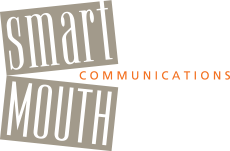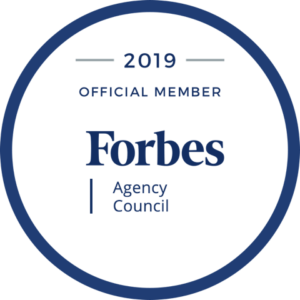 If there were ever an invitation to “wing it” in public speaking, it would be when you’re invited to speak on a panel.
If there were ever an invitation to “wing it” in public speaking, it would be when you’re invited to speak on a panel.
Or would it?
I think this is worth discussing …
For sure, the glory/work quotient of participating on a panel is high. On the glory side, panels are great public speaking opportunities. You’re usually matched with other notables in your field, sometimes with those more notable. You get great exposure and access to a new audience. And you get to share your best nuggets of genius without bearing full responsibility for filling the time.
On the work side, the heavy lifting is typically low. Except in cases where the panel is structured, and specific subsections of the topic are assigned, most panels tend to flow freely once introductions and perhaps opening remarks are made. They’re often moderated or facilitated, there are plenty of prompts to remind you exactly what to talk about, and there’s always someone to bail you out or fill an uncomfortable silence if you trail off, forget what you were about to say, or have only a few words to offer. Sweet!
So, prepare or wing it?
To answer this dilemma, I think you need to ask yourself why you said yes in the first place. What drew you? Was it a close colleague or friend who invited you? Was it the location of the event? (ProTip: Say yes to panels in Hawaii.) Maybe it was the opportunity to get in front of a particular audience? Or maybe you said yes because the topic is so near and dear to you, speaking about it on a panel would be a breeze, almost second-nature.
Your motivation for accepting the invitation informs but shouldn’t really affect your decision to prepare or not. Would it do you great harm not to prepare? Probably not. Would it benefit you greatly not to prepare? Probably not. In other words, there’s a decent probability that not preparing has a net neutral effect. You don’t really lose, you don’t really gain.
But let’s be honest here. Net neutral is not the typical effect you look to have in your career, is it? You spend a lot of time building – your network, your reputation, your expertise, your visibility. It’s probably fair to say that if you’ve said yes to a panel invitation, there’s some net gain you’ve identified. Therefore, at least some preparation is warranted.
To that end, let’s look at some ways to prepare that don’t take a lot of time but may pack a lot of punch:
Must-air points. Given the topic, there are likely points you do not want to forget to share with the audience. Think of it as a collection of your most important thoughts on the topic – your “greatest hits” – and jot them down in bullet point form.
Differentiators. Surely you have ideas, theories, discoveries, concepts or philosophies that are unique to you/your work and would distinguish you with the audience. Decide which ones you want to share and add them to your bullet points.
Stories. You most definitely have stories – examples, anecdotes, and/or drama-filled sagas – you can share. Pick your best ones and add those to the bullet points as well. Two tips on stories: 1) unless you identify and shape/practice them in advance, you’re unlikely to conjure up and tell the perfect story on the spot; and 2) stories need to be matched up with a point you’re making, in which the point becomes the punchline to the story.
The risks associated with winging it – rambling, hemming and hawing, searching your brain for the right things to say, losing your train of thought – are too great. Being prepared – with a definitive beginning and end to your points and good stories to illustrate those points – conveys confidence, command and polish. All you need is a few bullet points and you can post your next panel in the gain column!
- New Agey Advice for Nervousness - November 3, 2022
- Your Passion Can Go a Long Way Toward Building Connection - October 10, 2022
- Keep stage fright a private matter while you’re speaking on a public stage! - August 11, 2022



